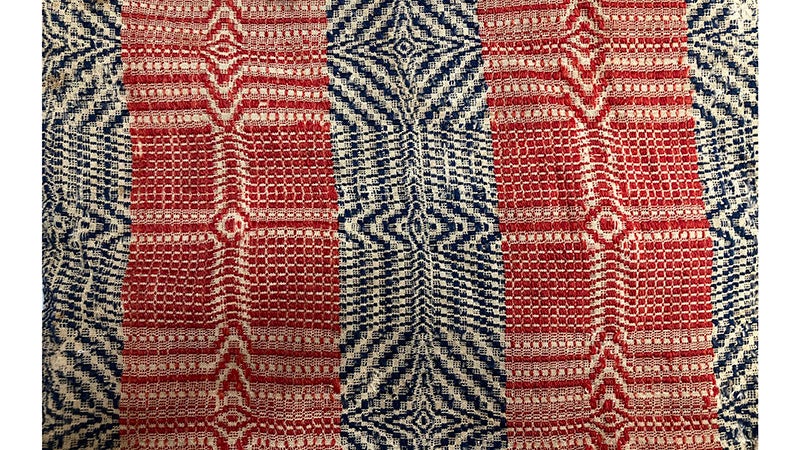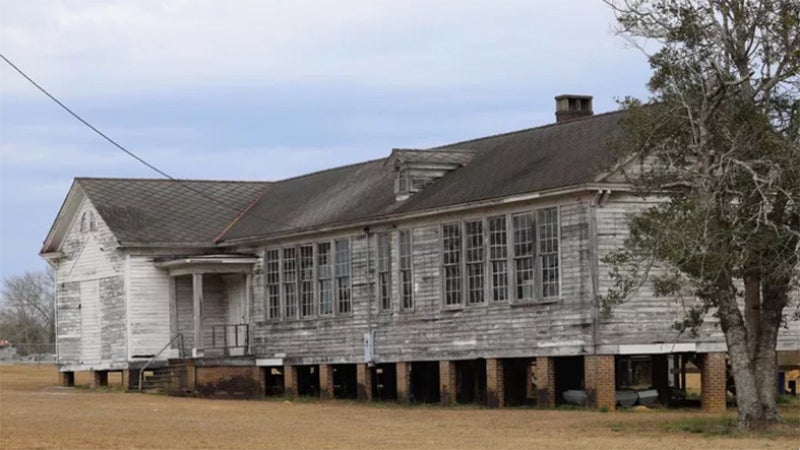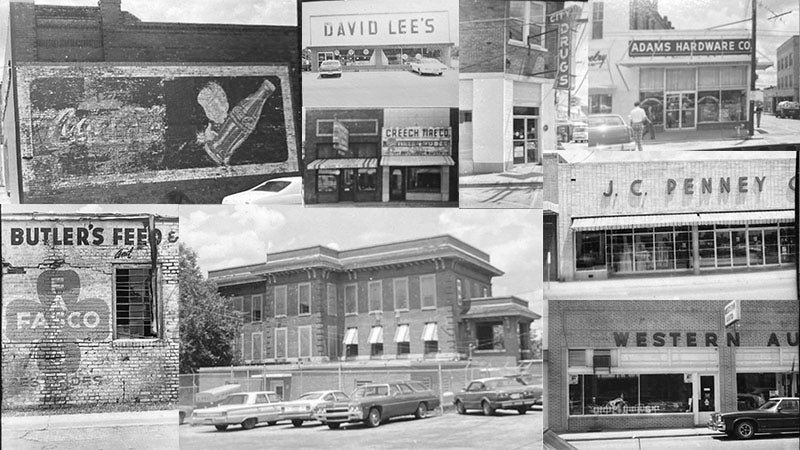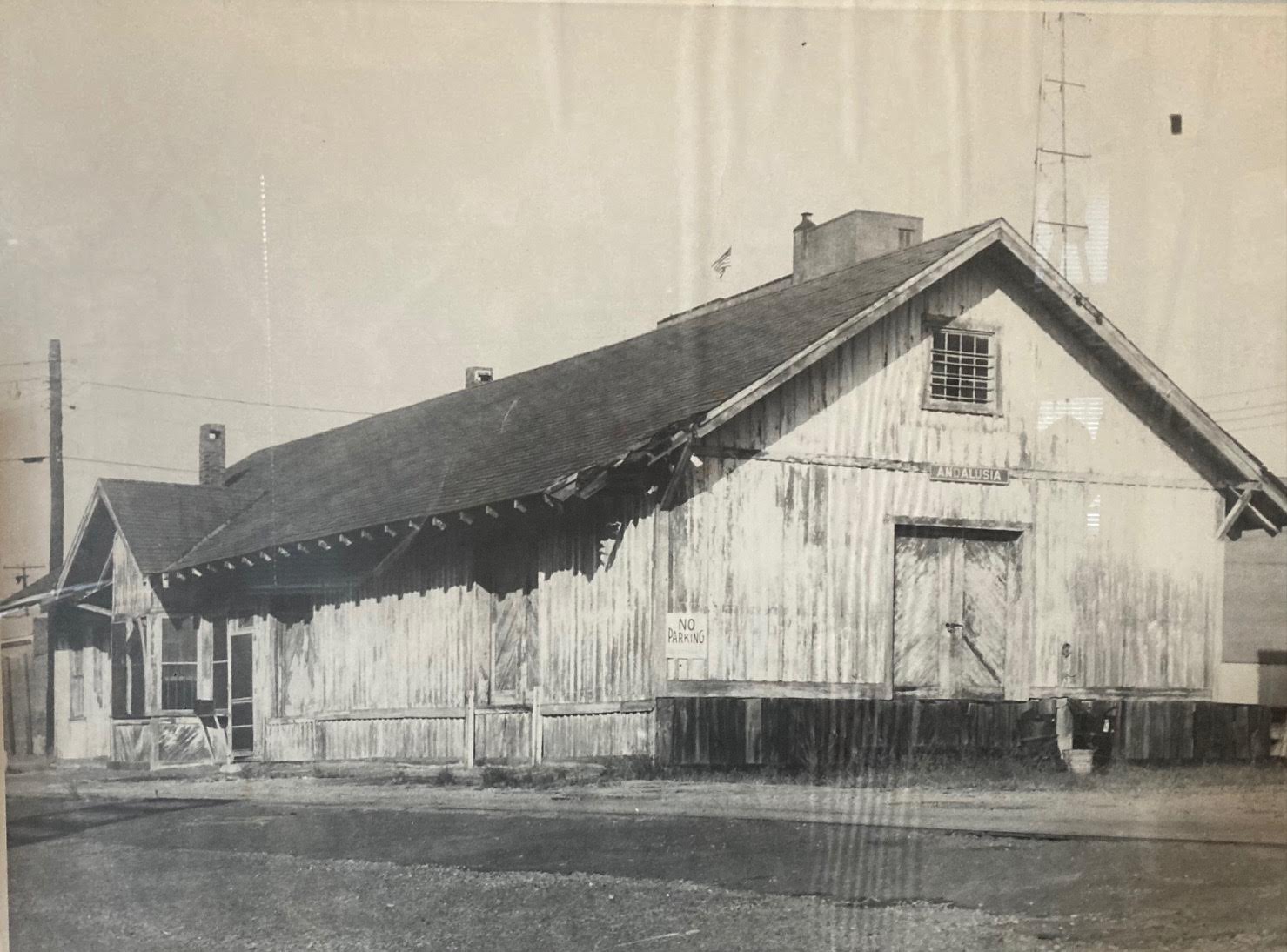Remember when: Former POWs sent letters
Published 1:49 am Saturday, June 17, 2017
During the summer of 1940, reporters gathered at the White Cliffs of Dover to watch the aerial dogfights between German and British aircraft during the Battle of Britain. The cliffs along the coastline of England are considered to have great symbolic value, because they mark the point where Great Britain most closely approaches continental Europe. This narrowest part of the English Channel is where invasions have historically threatened and where the white chalk cliffs form a symbolic guard.
This popular World War II song was written in 1940. “There’ll be bluebirds over the Cliffs of Dover, tomorrow, just you wait and see. There’ll be love and laughter and peace ever after, tomorrow, when the world is free…”
Mrs. Clayton (Barbara) Bryant brought in copies of five (5) letters written to the family of Ralph and Eunice Bryant after the end of World War II.
Horst Dettmar, a German prisoner of war, was housed in Andalusia in a detention camp in the mid 1940s along with his comrades. Local farmers often hired these prisoners to work on their farms in Carolina, Heath, Rose Hill, and perhaps others. The workers who were transported in open trucks around town brought with them each day two sandwiches each for their lunch. Many of the wives of the farmers they worked for all over the county prepared and served extra food for them at lunchtime. They often enjoyed the local cuisine of South Alabama.
The Bryant farm was located in the Rose Hill area. Dettmar, fluent in English and very friendly, worked on the Bryant farm in Rose Hill helping to gather their peanuts in 1945.
Dettmar and the other POWs eventually left the United States thinking they were headed home in April 1946. However, instead of being sent home to Germany, they were sent to England and still imprisoned for almost another year and a half. Finally reaching home to Germany in late August 1947, Dettmar wrote his first letter to the Bryant family thanking them for their “kindness and understanding.” He, more or less, painted a picture of the conditions in his home country at the time of little food, nothing to buy in the grocers’ stores that were remaining, and the widespread hunger that was being experienced by everyone from the children to the elderly.
The following excerpts from these letters I will share with you readers. They describe a time like we never hope to see again in our world, a time that most of us cannot even imagine.
“September 1947 – Dear Mr. Bryant, I guess you will be very surprised to receive a letter from Germany. You may even not know who I am and how I know your address. I was working at your farm during the peanut harvesting. I planned to send you a note as soon as I came home from my prisoner of war time. That happy day has come last week. We were sent away from America in April 1946. We thought we were going home, but first we had to serve 1 ½ years as a P. O. W. in England. I was sent home from England after a not too good time last month. My parents and sister are all right. They only look slim by the present food situation. It is just enough to keep living. I think back of the good food in America during the war time. Do you remember when you gave us a chicken dinner and some nice cake and coffee? The poor children nowadays do not know anything about sweets are (or) chocolate. They are all under the normal weight. We in our family do all our best to keep the life going. We all wait and hope that it will get better, but so far instead of getting better, it is getting worse.”
“I write this letter to thank you for your kindness and understanding. I hope that your wife and children are all well. I would be very thankful if you would write me in return as it keeps me in practice with the English language. Besides, it will be interesting to know how everything is going on over there. All the best to you and your children and wife with kindly regards always.”
“October 1947 – Today I received the first letter of (from) you. I want to thank you very much. It took just 13 days from your place to me as you send your letter per air mail. I was glad to know your family is in good health and happy. You are at the present the best off people in living in this world. I wouldn’t mind to live in America today. I am glad to know you (are) making good money with your peanuts and your saw mill. How much I would like to eat peanuts again. I like them very much. When I was a little boy you could buy peanuts from America in every food store. I have two little nieces, 6 and 8 years of age. They do not know any peanuts at all. They are waiting still for their father who was missing in action in summer of 1944. We do not know anything about him so far, but we keep hoping that he is as a prisoner of war in Russia and is still all right. It is a pity, but it can’t be changed. Besides that, I lost a sister, her baby, and her husband in action during the fight in Yugoslavia. There is nearly no family who did not lost (lose) anybody in this terrible war. We will hope that there never will be any war again.”
“Everything is rationed in our country now. It is impossible to get any food extra. It is especially hard for the housewife today as they sometimes do not know what they shall cook or give their children to eat. We have to eat twice a day soup as we have only 7 slices of bread to eat for one day. We get rations every 10 days – bread, 8 lbs., meat ½ lb., grease or fat 1/15 of a lb., sugar 1/6 lb., marmalade, ½ lb., and that is all! It is just enough to keep you living. These rations are for working people. Children and housewives get shorter rations. I just had my supper consisting of one plate full of potato soup, 1 slice of bread with nothing on it. But we get used to it as we have to!”
“February 1948 – My last letter I wrote to you was at the 7th of December including my best Christmas and New Year wishes and a picture of myself. I am still in good health and hope the same of yourself and your family, but I am hungry! It is a shame to live nowadays. We can’t help ourselves as we lost this terrible war, and we are now people without any rights. But if all the people in this world would try to forgive, there should be peace now. I wonder only when there will be real peace. The whole life is only a fight. Our main fight today is the food, dear Mr. Bryant. Hungry little children ask you for some bread and you can’t give them any as you have nothing to give. Then they start crying. Oh, it is terrible not to be able to help as the youngsters do not understand that there has been a war and that their mother cannot go to the grocer and buy something for them. The grown-up generation knows that crying does not help and that we have to wait till (a) better time is coming. We have to wait and to hope that is all that we can do.”
“Today it is a frosty and cold winter day. Since last week, we have winter. All the other time, it has been mild weather without snow. This is a lucky turn for the people as we cannot get any coal from October till today. We got 2 (?) of coal. Last year when the winter in Europe was so strong, whole woods have disappeared. The people have cut the trees down to have something to heat and to cook with. It is really a good thing that this winter is mild. The radio announced that the present frost will go down at the end of this week. I guess you do not know anything about a real cold winter as you have different climate in Alabama. I would like to be over there nowadays.”
“How is business going – the saw mill and the farm land? I could ask you so much (many) questions! Please write me again as soon as possible! Now good night to you! If possible, how about sending me some envelopes and writing paper. You can’t get things like this in our shops. Yours sincerely, Horst Dettmar”
“April 1948 – Yesterday, I received your letter. I was glad to hear from you again after a long time. I am very sorry to hear about the death of your brother so I can understand why you didn’t write. I want to thank you for your nice picture. I remember that place very well where the picture was taken – at the left side of your house when you come into the front yard. Right? At the fields in the background, I worked with my group to harvest your peanuts in the summer of 1945. But there are years and thousands of miles between. How much I would like to eat peanuts again. It is (was) hard work to harvest them, but it was not too hard for us P.O.W.’s as we liked you, Mr. Bryant, and that you didn’t blame us for being soldiers during the war and that we had to fight against you. We had done only our duty as we didn’t go as volunteers, we had to go! You always could understand that, but some farmers could not. I want to thank you again for your kindness in our hard days.”
“Now to your wonderful news about sending me a parcel – If I get it, I do not know how to thank you for it. If I would only have a possibility to give you your money back. Maybe I can send you stamps from Jerusalem and Europa, and you can sell them to somebody who collects stamps. We can use everything starting from lighter fluid to old stockings. You can’t get nothing at all in our shops nowadays. It is too hard to describe in a letter, but I guess that you can read some description about our life in some of your newspapers. The food situation is the worst, I feel awfully sorry for the kids and the elder people. The elder people are all more or less sick and a lot of them die after a very short sickness as they have no resistance any more by the shortness of the food under which they have had to live for years!”
“There is the seeding time now. Everybody is busy in his little garden. Every spot of ground is used to plant something on it, but even the seeds are hard to get. You have to wait for some hours at the shops which sell seeds to get some, but the people help themselves and hope that there will be a good harvest this year and that the food situation will be a little bit better.”
The Bryants sent several packages containing food, writing paper, etc.; however, the last two packages were returned. The last letter received from Dettmar was dated June 1, 1948.
“June 1948 – Dear Mr. Bryant and family, I am still doing my work as mechanic in my factory and earn a good salary, but the money is nothing as you can’t get anything for it except what you get on your ration stamps. That is too much to die and too less to live. We only can hope and wait. I hope that this letter received you in the best of health. I (will) send you some more stamps later. Mr. Bryant, I want to thank you very much for trying to send me a parcel. If you send a parcel to my sister in Berlin, she lives in the American sector, I can fetch it from her. That will be the best way, I think. She knows some people in her neighborhood who often get parcels straight from America. I enclose her address. I send the best wishes to you and your family. Yours sincerely, Horst Dettmar.”
Horst Dettmar, I will note, had a beautiful handwriting so the Queen’s English and penmanship was definitely taught as part of his German education. There is much we can learn from reading letters like this from another era, from a time of war and peace. As we REMEMBER WHEN, let us pray that those of us living will never have to experience times like those. Let us hope that there will be “love and laughter and peace ever after.” Whatever happened to Horst Dettmar and his family, we will probably never know. It is a certainty that he did what he had to do to survive. We are proud of Mr. Bryant and his family who befriended the German P. O. W.’s and then later corresponded with one of them. From Shakespeare I quote, “Oh, war, son of Hell!”
You and your family are invited to visit the Three Notch Museum on Historic Central Street this summer. The “war room” is a visual interpretation of some of our locals who served in the military. Young people may have never seen displays of artifacts such as a mess kit, a Purple Heart award, a WWI helmet, or a WWII Red Cross worker’s outfit. Opening times are Monday, Tuesday, Wednesday, 9:00-2:00 and Sunday afternoons, 2-4:00 p.m. For special group tours by appointment, call 222-0674.
Be sure to mark your calendar for Tuesday, July 4, 10 a.m. and plan to attend and/or participate in the 4th of July parade sponsored by the Old Three Notch Chapter of the D.A.R. and the City of Andalusia. Show your patriotism and fly your flag high! God bless America!






